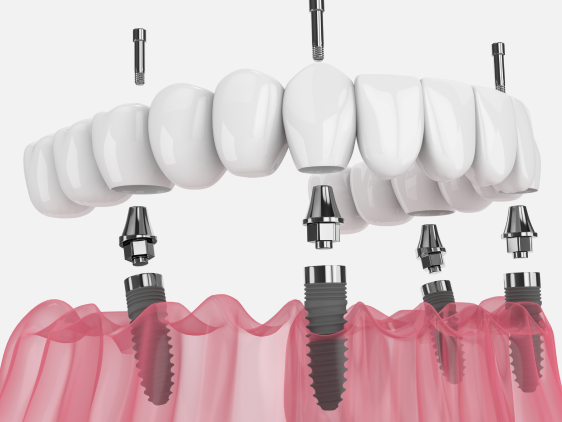Lonsdale Dental Implants
We proudly offer dental implants in North Vancouver. For more information keep reading below or if you are ready to book, contact your North Vancouver Dental Implant Centre to learn more today.
What are Dental Implants?
Dental implants are one of the best options for natural teeth replacement. A Dental implant Restoration has multiple components. The “Implant” itself is a titanium screw that serves to replace the root portion of a missing natural tooth. A “crown” is later installed onto the implant once healing has completed to help with your natural function.
Maintaining a dental implant is easy, all they need is to be brushed and flossed around just like your natural teeth. With proper care and follow up with your dentist, an implant can last a lifetime.
Dental implants heal by integrating with the jaw bone through a process called “osteointegration” after which, a crown can be placed which serves as the visible and functional portion of your tooth.
Dental implants look, feel and function like natural teeth, and with proper care can last a lifetime.


What Type Of Dental Implant Treatment Do I Need?
We offer a large selection of dental implant treatment options from single-tooth replacement full mouth solutions. Utilizing the latest technology, our team can help formulate custom implant treatments specific to you.
Rest assured, you are in care of a team that has decades of collective experience in Dental implants with thousands of satisfied patients.
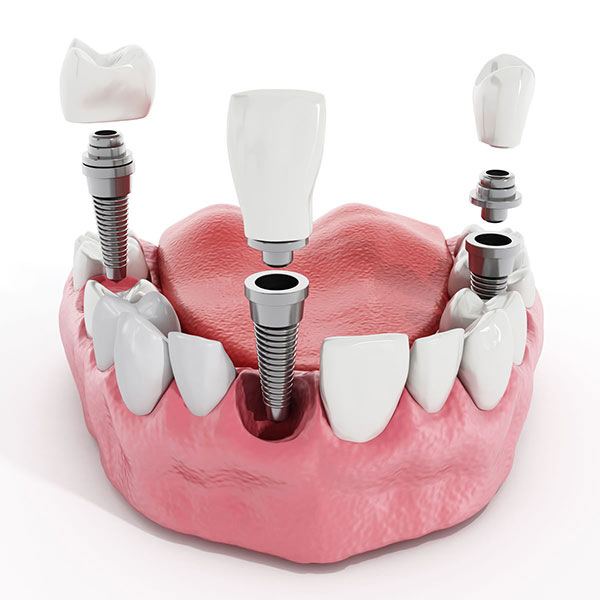
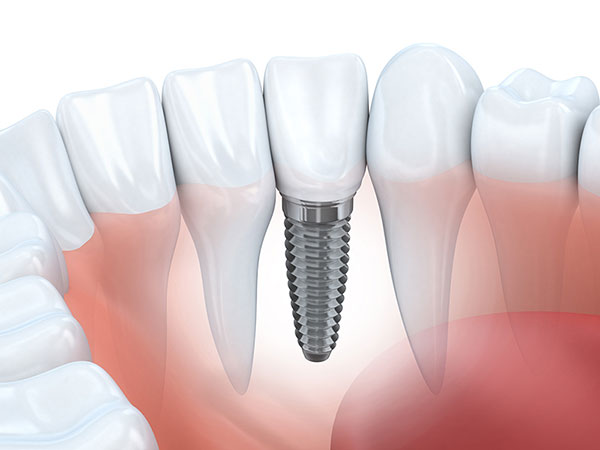
Single Tooth Replacement
A single implant can be used to support a single crown to replace 1 missing tooth. In addition to tooth replacement, dental implants help preserve jaw bone volume by constant stimulation of the bone. other advantages of a dental implant include, replace a single tooth without sacrificing the health of neighboring teeth, help preserve arch space, help keep gum health optimal etc.
Multiple Tooth Replacement
Dental implants can also be used to replace several teeth, eliminating the need to grind down healthy adjacent teeth to serve as posts for traditional partial Denture or Bridge therapy.
Multiple combinations of treatments can be considered and customised to your individual needs.
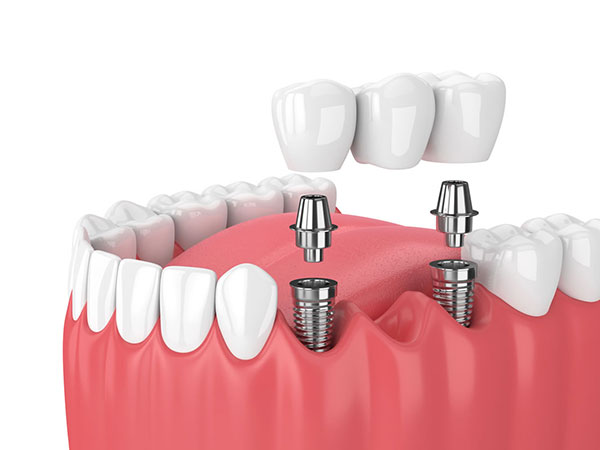
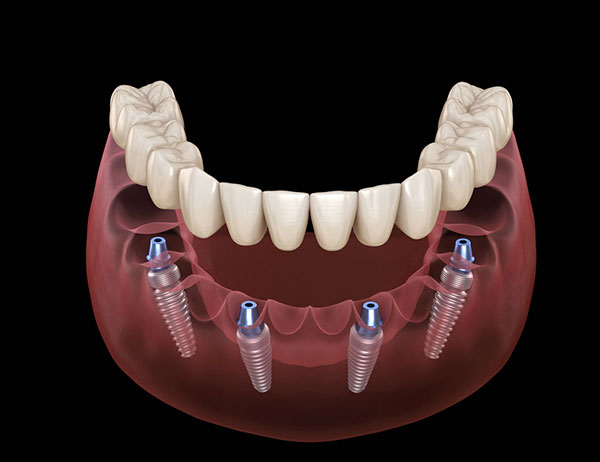
Full-Mouth Replacement (also known as all-on-four)
If you are missing most or all of your teeth in an arch (top or bottom), or have teeth that are too damaged to be saved, full mouth implants may be a suitable option. Also known as a fixed implant-supported prosthesis, All-On-4® treatment, or All-On-X Implant these options all involve a permanent bridge containing a full arch of new teeth being attached directly to a small number of anchor implants (often four to six implant roots as the names suggest).
Implant Overdentures
Implant Overdentures may be a suitable option for you if you want a full mouth implant solution that is removable. Compared to traditional dentures, implant overdentures are connected to dental implants which are fitted with a click-in mechanism. They provide a better fit and higher stability than conventional dentures.
